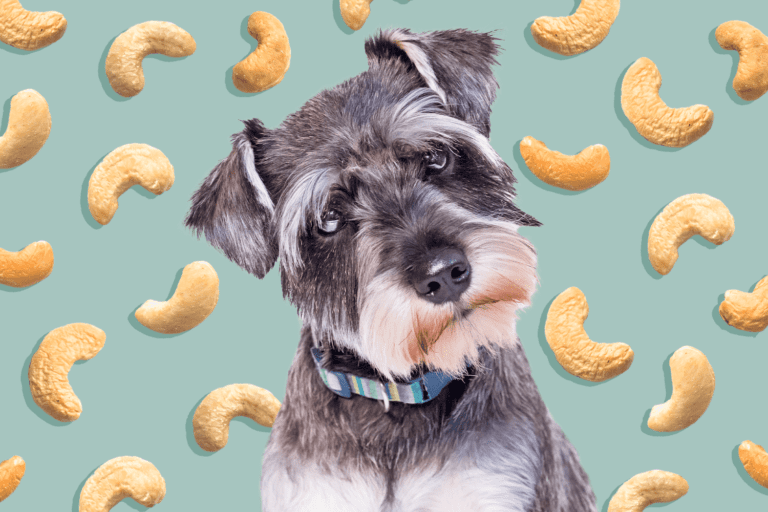Are you a dog owner wondering if cashews are a safe treat for your furry friend? You’re not alone. Many dog owners are curious about which human foods are safe for their dogs to eat, and cashews are no exception. So, can dogs eat cashews? Let’s dig into the details and find out.

Credit: www.pinterest.com
Are Cashews Safe for Dogs?
According to the American Kennel Club, cashews are generally safe for dogs to eat. Unlike macadamia nuts, cashews are not toxic to dogs. However, there are some important considerations to keep in mind before sharing this snack with your canine companion.
Benefits Of Cashews For Dogs
Cashews can provide some nutritional benefits for dogs when given in moderation. They contain healthy fats, protein, and essential nutrients like vitamins and minerals. These nutrients can support your dog’s overall health and well-being when incorporated into a balanced diet.
Risks Of Feeding Cashews To Dogs
While cashews may offer some nutritional value, they are high in fat. Feeding your dog too many cashews can lead to weight gain and potentially contribute to pancreatitis. In addition, the high fat content may not be suitable for dogs with certain health conditions, so it’s essential to consult with your veterinarian if you have any concerns.
How to Safely Offer Cashews to Dogs
If you decide to share cashews with your dog, it’s crucial to do so in a safe and responsible manner. Here are some tips for offering cashews as an occasional treat:
- Only provide plain, unsalted cashews to your dog.
- Avoid offering cashews that are coated in flavorings or seasonings.
- Introduce cashews gradually to monitor your dog’s reaction and prevent digestive upset.
- Keep portion sizes small and offer them as an occasional treat rather than a regular part of your dog’s diet.
- Monitor your dog for any signs of adverse reactions after consuming cashews and seek veterinary care if needed.
:strip_icc()/cashews-56b3ecd95f9b5829f82c391e.jpg)
Credit: www.thesprucepets.com
Other Nuts to Avoid
While cashews may be safe for dogs in moderation, it’s essential to be aware of other nuts that can be harmful to dogs. Macadamia nuts, black walnuts, and pistachios are examples of nuts that are toxic to dogs and should be avoided entirely. Always keep these nuts out of your dog’s reach to prevent accidental ingestion.
Consult Your Veterinarian
Before introducing cashews or any new food into your dog’s diet, it’s best to consult with your veterinarian. They can provide personalized guidance based on your dog’s individual health needs, dietary requirements, and any existing medical conditions. Your veterinarian can help you make informed decisions about what foods are safe and appropriate for your dog.
Frequently Asked Questions On Can Dogs Eat Cashews?
What Happens If My Dog Eats Cashews?
Although cashews are non-toxic for dogs, they should only be eaten in moderation to prevent health issues. Cashews are high in fat, which can lead to obesity or pancreatitis if consumed regularly. It’s best to give your dog a balanced diet for optimal health.
Which Nuts Are Toxic To Dogs?
Macadamia nuts, black walnuts, old/moldy walnuts, raw cashews, and pistachios are toxic to dogs.
How Much Cashews Can I Give My Dog?
Cashews can be given to dogs in moderation. While they are not toxic, they are high in fat and can lead to obesity or pancreatitis if consumed in excess. It’s important to ensure that the cashews are unsalted and shelled to avoid any potential choking hazards.
Are Cashews Or Peanuts Better For Dogs?
Cashews and peanuts should be given to dogs in moderation due to their high fat content. While both can be safe in small quantities, they can lead to obesity and pancreatitis over time. Additionally, they may pose a choking hazard.
It is best to consult with a veterinarian before giving any nuts to your dog.
Conclusion
In summary, while cashews are not toxic to dogs, they should be given in moderation and as part of a balanced diet. As with any new food, it’s important to introduce cashews cautiously and monitor your dog for any adverse reactions. When in doubt, always seek advice from your veterinarian to ensure that you’re making the best choices for your furry companion’s health and well-being.

